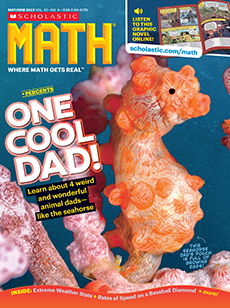Jim McMahon/Mapman
Casey Youngflesh is standing on the Antarctic Peninsula. This long landmass juts out of Earth’s southernmost continent. The temperature outside hovers around freezing, so he’s bundled up in a snowsuit. Not only will it keep him warm, but it also might soften the blow from a penguin attack. Although Adélie penguins are among the smallest of Antarctica’s penguins, they’re feisty. “They can be quite terrifying,” he says. “Their powerful flippers can feel like a boat oar slapping your calf.”
As Youngflesh and his colleagues approach the colony, they hear the squawking of hundreds of thousands of Adélie penguins before they see them. The overwhelming fishy smell of the birds’ poop covering the frozen ground can’t be ignored either. In fact, that is exactly what they’re there to collect. Youngflesh is an ecologist who studies penguins by examining their poop. It turns out the poop reveals a lot about the birds and their surrounding ecosystem.
In addition to collecting poop samples, Youngflesh and his colleagues use high-tech tools to monitor the birds. By comparing images taken by satellites in space and drones that zoom over the land, they are learning more about how climate change is affecting the ecosystems on the frozen continent.
Casey Youngflesh is standing on the Antarctic Peninsula. This long piece of land sticks out of the most southern continent on Earth. It’s freezing outside, so he’s bundled up in a snowsuit. But the suit isn’t only for keeping him warm. It also might soften the blow from a penguin attack. Adélie penguins are small, but they’re feisty. “They can be quite terrifying,” Youngflesh says. “Their powerful flippers can feel like a boat oar slapping your calf.”
Youngflesh and his colleagues approach the colony where Adélie penguins live. There are hundreds of thousands of them there. The scientists hear the birds squawking before they see them. The fishy smell of the birds’ poop also fills the air. In fact, that’s exactly what Youngflesh is there to collect. He’s an ecologist who studies penguins by examining their poop. It can teach him a lot about the birds and their environment.
Youngflesh and his colleagues do more than collect poop samples. They also use high-tech tools to monitor the birds. They study images of Antarctica taken by flying drones and satellites in space. By comparing the images, they’re learning more about how climate change is affecting life on the frozen continent.
